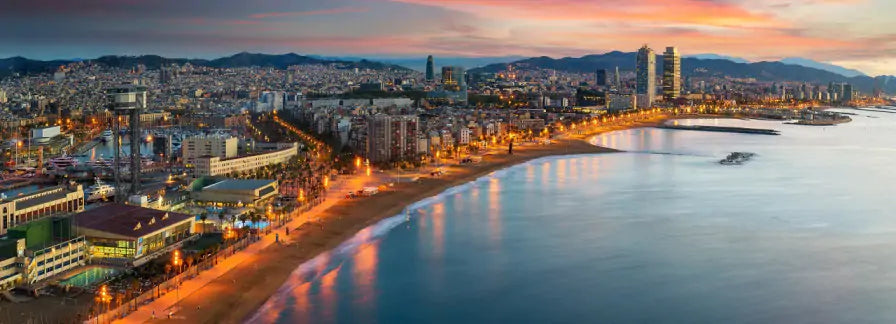Why not add these to compliment your wheelie bins?
Your basket is currently empty.
Shop NowWe guarantee to have the lowest price! Find the same bin for a cheaper price and we will beat it!

Spain’s coastline
Over 61 million tourists visit Spain each year, which contributes massively to the country’s economy. In fact, the country has the second largest income from tourism worldwide, and the largest in Europe.
Spain’s biggest attraction is its beautiful coastline, with people flocking to it for sun drenched beach holidays.
But marine and beach litter poses a big threat to tourism, as it threatens the natural beauty of the coastline, it harms wildlife, causes pollution, and is potentially harmful to health.
The main issues: marine litter and beach litter
Cadiz
The Catalonian coast in the North East of Spain is a popular tourist destination. In the Cádiz municipality, which has several tourist beaches, over 1 million euro is invested in the cleaning and maintenance of beaches. Urban and resort beaches are generally cleaned, though rural and remote beaches tend to be neglected.
What type of litter is discarded on the beaches?
Glass bottles, plastic bottles, bottle caps and lids
Hazardous litter
Some litter that is found on the coastline is hazardous and potentially damaging to health, and includes
Prevention of beach litter
In an ideal world, litter could be prevented at source, but as many types of beach litter are washed up on the beach rather than discarded on it, there is little that can be done by those whose job it is to clean up the beaches.
Education and changing attitudes is key, and not always easy. However, in places where a ‘beach culture’ exists, litter does not tend to pose so much of a problem, as people have respect for the beaches.
There are fixed penalties for littering in most parts of Spain, however, they are often poorly implemented and not enforced.
Smoking is not banned in the beaches in Cadiz, but the municipality provides cones for the disposal of cigarettes next to sun loungers if people want to smoke.
What needs to happen?
As many beaches in Spain are popular all year round, they need to be cleaned more frequently.
More work is needed to identify where litter at its source, and to improve the cost effectiveness of beach cleaning and maintenance.
Marine litter initiatives
Raising Awareness
Fundación Ecomar is a successful organisation which provides children with education on sports, ecology, and healthy living.
It runs programmes in conjunction with PlasticsEurope, and they combine teaching children about the value of the marine environment, how to correctly deal with plastic waste and sailing lessons.
The scheme began in 2011, when they ran a successful workshop called “Taking care of the sea when sailing”, and it showed that children are conscious about marine litter, and of the need to recycle plastic. The children would then share their knowledge with family and friends which increased the value of the workshop.
In 2012, 40 Spanish sailing clubs were involved in the project, and the programme reached more than 7,500 children.